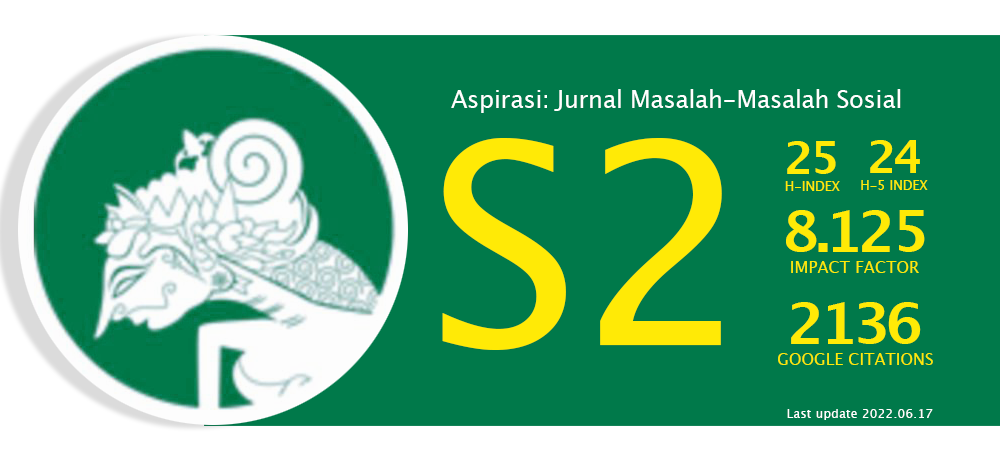Tantangan Pengembangan Wisata Halal di Nusa Tenggara Barat
Abstract
Since 2015 Ministry or Tourism of the Republic of Indonesia appointed three provinces in Indonesia as a halal tourist destinations. The three provinces are West Nusa Tenggara (NTB), West Sumatera and Aceh. Of the three provinces, NTB is considered to have great potential to develop halal tourism in Indonesia. There are three reasons why NTB province has great potential in developing halal tourism. First, the natural beauty that is owned by NTB is not inferior to that owned by Bali Province. Second, the majority of NTB’s population is Muslim. Third, NTB has a unique culture and religious tradition. This study describes the efforts taken and challenges faced by the NTB government in developing halal tourism in NTB. This study uses qualitative methods. The data were collected by library studies and in-depth interviews with business actors, religious leaders, and NTB administrations. This study concludes that one of the efforts of NTB Local Government in developing halal tourism is to make local regulation concerning Halal Tourism as a legal umbrella for NTB government, business actor, and society. This law regulates the halal tourism industry which includes accommodation, travel agency, restaurant and solus per aqua (SPA). The management of the halal tourism industry must follow the counsel of the National Sharia Council of the Indonesian Council of Ulama. Despite having been awarded as World’s Best Halal Tourism and World’s Best Halal Honeymoon Destination and have a legal umbrella for developing halal tourism, NTB Government still faces many challenges. The first challenge is convincing its citizens about the urgency of developing halal tourism in NTB, second preparation of competent human resources, third, with the acceleration of halal certification for hotel and restaurant. Fourth, synergy among stakeholders in halal certification process. And fifth, halal tourism needs to be supported by a set of legislation that can synergize all stakeholders involved in the process of halal certification.
Sejak 2015 Kementerian Pariwisata Republik Indonesia menunjuk tiga provinsi di Indonesia sebagai destinasi wisata halal. Ketiga provinsi tersebut adalah Nusa Tenggara Barat (NTB), Sumatera Barat, dan Aceh. Dari tiga provinsi tersebut, NTB dipandang memiliki potensi besar untuk mengembangkan wisata halal di Indonesia. Ada tiga alasan mengapa Provinsi NTB memiliki potensi besar dalam mengembangkan wisata halal. Pertama, keindahan alam yang dimiliki oleh NTB tidak kalah dengan yang dimiliki oleh Provinsi Bali. Kedua, mayoritas penduduk NTB adalah muslim. Ketiga, NTB memiliki kultur dan tradisi keagamaan yang unik. Studi ini menjelaskan upaya dan tantangan yang dihadapi oleh Pemda NTB dalam mengembangkan wisata halal di NTB. Studi ini menggunakan metode kualitatif. Data-datanya dikumpulkan dengan studi kepustakaan dan wawancara mendalam pelaku usaha, tokoh agama, dan Pemda NTB. Studi ini menyimpulkan salah satu upaya Pemda NTB dalam mengembangkan wisata halal adalah membuat peraturan daerah tentang Pariwisata Halal sebagai payung hukum bagi Pemda NTB, pelaku usaha, dan masyarakat. Perda ini mengatur industri wisata halal yang meliputi akomodasi, biro perjalanan, restoran, dan solus per aqua (SPA). Pengelolaan industri wisata halal itu harus mengikuti ketentuan yang telah ditetapkan oleh Dewan Syariah Nasional Majelis Ulama Indonesia. Meskipun pernah memperoleh penghargaan sebagai World’s Best Halal Tourism dan World’s Best Halal Honeymoon Destination dan telah memiliki payung hukum untuk mengembangkan wisata halal, Pemda NTB masih menghadapi berbagai tantangan, di antara tantangannya adalah pertama, meyakinkan warganya tentang urgensi pengembangan wisata halal di NTB, kedua, penyiapan sumber daya manusia yang kompeten, ketiga, percepatan sertifikasi halal bagi hotel dan restoran. Keempat, sinergi antarpemangku kepentingan dalam proses sertifikasi halal. Dan kelima, wisata halal perlu didukung oleh seperangkat peraturan perundangan yang dapat mensinergikan antarpemangku kepentingan yang terlibat dalam proses sertifikasi halal.
Keywords
Full Text:
pdfReferences
Jurnal
A. Wahab, Norazla, Farah M. Shahwahid, Nor ‘Adha Ab.Hamid, Norziah Othman, Syaripah N. Syed Ager, Marliana Abdullah, Surianom, Miskam, Wawarah Saidpudin. (2016). Contribution of Malaysia and Singapore in the Development of Halal Industry
in the ASEAN Region, Asian Journal of Social Sciences and Humanities, 5 (2) May.
Chookaew, Sureerat, Oraphan Chanin, Jirapa Charatarawat, Pingpic Sriprasert, and Sudarat, (2015). Increasing Halal Tourism Potential at Andaman Gulf in Thailand for Muslim Country, Journal of Economic, Business and Management, 3 (7).
Zuhdi, Muhammad Harfin. (2013), Islam Wetu Telu di Bayan Lombok: Dialektika Islam dan Tradisi Lokal, e-journal STAIN Pekalongan 12 (1).
Buku
Ab. Manan, Siti Khadijah, Fadilah Abd Rahman, Mardhiyyah Sahri. (2016), Contemporary Issuesand Development in the Global Hahal Industry, Singapore: Springer Science+Bussiness Media.
Adidaya, Yoza Achmad. (2016). Halal in Japan: History, Issues and Problems, University of Oslo: Departement of Culture Studies and Oriental Languages.
Andriani, Dini, dkk. (2015). Laporan Akhir Kajian Pengembangan Wisata Syariah, Jakarta: Asisten Deputi Penelitian dan Pengembangan Kebijakan Kepariwisataan, Deputi Bidang Pengembangan Kelembagaan Kepariwisataan Kementerian Pariwisata.
Anonim, Your Singapore-Panorama. (2015). Muslim Travellers Guide to Singapore.
Budiwanti, Erni. (2000). Islam Sasak, Yogyakarta: LkiS.
Egresi, Istvan (Ed.). (2016). Alternative Tourism in Turkey: Role, Potenstial Deelopment and Sustainability, Springer International Publishing Geo Journal Library 121.
Elasrag, Hussein. (2016). Halal Industry: Key Challenges and Opportunities.
MasterCard-CresentRating. (2015). Global Muslim Travel Index 2015.
Pew Research Center’s Forum on Religion and Public Life. (2009). Mapping the Global Muslim Population: A Report on Size and Distribution of the World’s Muslim Population, Washington, D.C.:
Pew Forum on Religion & Public Life.
Thomson Reuters and Dinar Standard, (2015). State Global Islamic Economy: 2014-2015 Report.
Internet
http://bali.tribunnews.com/2015/11/25/tolak-wisatasyariah-di-bali-tidak-cocok-mangku-pastikabilang-begini, diakses 25 Nobember 2016.
http://industri.bisnis.com/read/20151007/12/479987/
pariwisata-syariah-lombok-prospektif-jadidestinasi-unggulan, diakses 2 Januari 2016.
http://news.fimadani.com, “Menteri Pariwisata Tak Setuju Istilah Wisata Syariah”, diakses 10 Januari 2016.
http://regional.liputan6.com/read/2601068/mencarihotel-halal-di-lombok, diakses 17 Februari 2017.
http://travel.kompas.com/read/2014/01/07/1717322/Inilah.9.Destinasi.Wisata.Syariah.di.Indonesia,diakses 2 Januari 2016.
http://www.antaranews.com/berita/531612/mes-baliminta-maaf-terkait-wisata-syariah, diakses 16 November 2016.
http://www.huffingtonpost.com/entry/the-4-reasonswhy-muslim-travellers-are-a-little-different_
us_576c5ccce4b02b216654ac00
Elena Nikolova, “The 4 Reasons Why Muslim Travelers Are A Little Different”, diakses 10 Januari 2017.
https://dunia.tempo.co/read/news/2017/03/20/118857574/
genjot-wisatawan-muslim-thailand-perkenalkanwisata-halal, diakes 20
Maret 2017.
https://www.dream.co.id/jejak/ini-3-provinsi-diindonesia-yang-jadi-destinasi-wisata-syariah150911w.html, diakses 2 Januari 2016.
https://www.holidayislombok.com/belum-semuarestoran-bersertifikat-halal-di-lombok.html, diakses 17 Februari 2017.
https://www.radarlombok.co.id/mui-dorong-skpddampingi-ikm-urus-sertifikasi-halal.html, diakses 29 November 2016.
Mohamed Battour, tt. “Halal Tourism or Muslim-friendly Tourism” dalam www.crescentrating.com diakses 10 Mei 2017.
Dokumen
Badan Perencanaan dan Pembangunan Daerah Provinsi Nusa Tenggara Barat, (2015). “Rencana Induk Pariwisata Berkelanjutan Pulau Lombok 2015-2019”.
Dewan Syariah Nasional-Majelis Ulama Indonesia (DSN-MUI), “Fatwa Dewan Syariah NasionalMajelis Ulama Indonesia No. 108/DSNMUI/X/2016 Tentang Pedoman penyelenggaraan Pariwisata Berdasarkan Prinsip Syariah.
Peraturan Menteri Pariwisata dan Ekonomi Kreatif Republik Indonesia Nomor 2 Tahun 2014 tentang Pedoman Penyelenggaraan Usaha Hotel Syariah.
Perda No 2 Tahun 2016 tentang Periwisata Halal.
Wawancara
BPOM-MUI Provinsi Bali
Pengelola Bali Muslim Tour
MUI Provinsi NusaTenggara Barat
Dinas Pariwisata Provinsi Nusa Tenggara Barat
DOI: https://doi.org/10.46807/aspirasi.v8i1.1258
Refbacks
- There are currently no refbacks.







